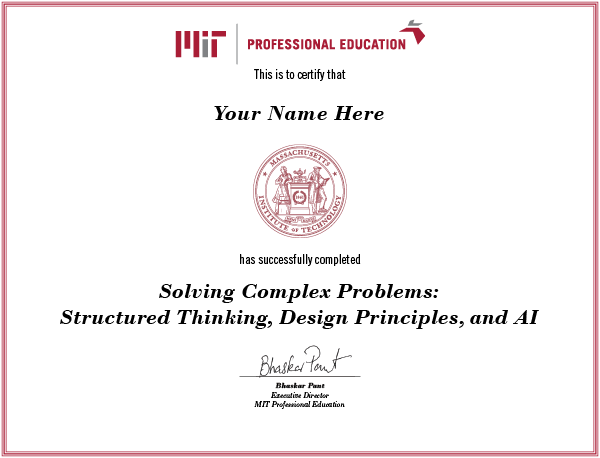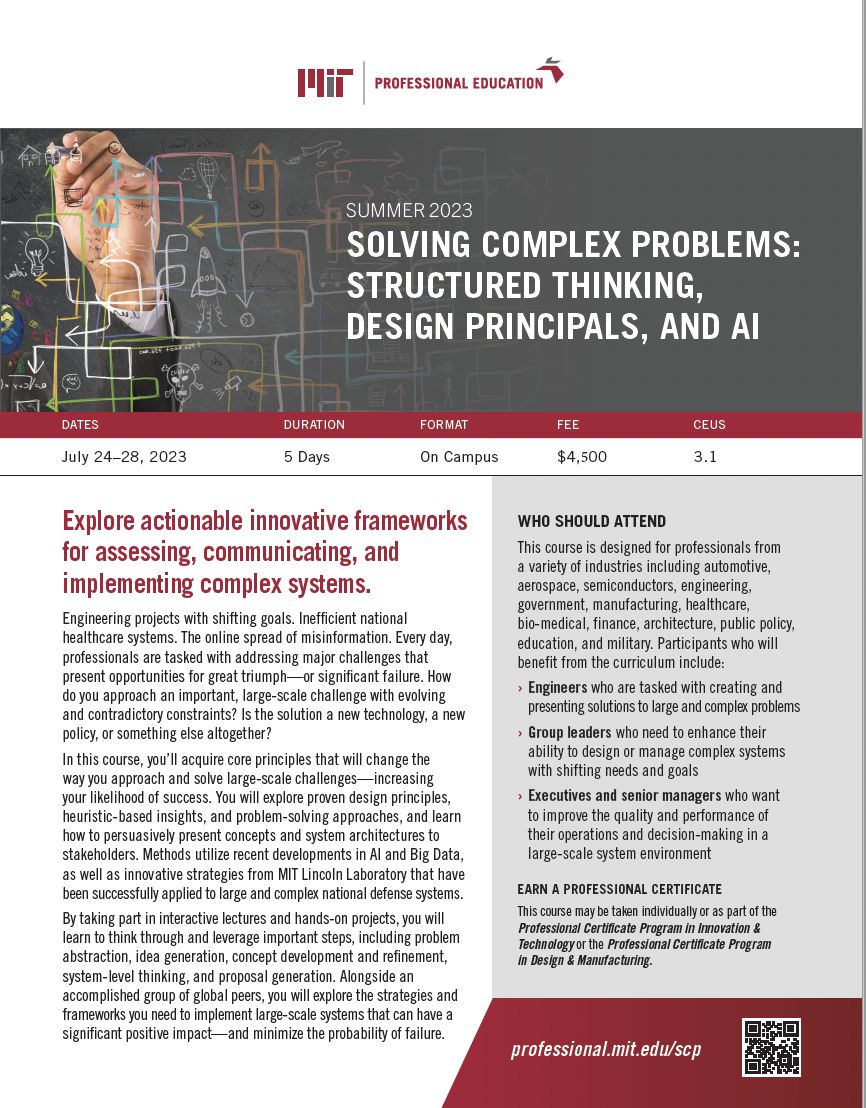Engineering projects with shifting goals. Inefficient national healthcare systems. The online spread of misinformation. Every day, professionals are tasked with addressing major challenges that present opportunities for great triumph—or significant failure. How do you approach an important, large-scale challenge with evolving and contradictory constraints? Is the solution a new technology, a new policy, or something else altogether?
In our new course Solving Complex Problems: Structured Thinking, Design Principles, and AI, you’ll acquire core principles that will change the way you approach and solve large-scale challenges—increasing your likelihood of success. Over the course of five days, you will explore proven design principles, heuristic-based insights, and problem-solving approaches, and learn how to persuasively present concepts and system architectures to stakeholders. Methods utilize recent developments in AI and Big Data, as well as innovative strategies from MIT Lincoln Laboratory that have been successfully applied to large and complex national defense systems.
By taking part in interactive lectures and hands-on projects, you will learn to think through and leverage important steps, including problem abstraction, idea generation, concept development and refinement, system-level thinking, and proposal generation. Alongside an accomplished group of global peers, you will explore the strategies and frameworks you need to implement large-scale systems that can have a significant positive impact—and minimize the probability of failure.
Certificate of Completion from MIT Professional Education





